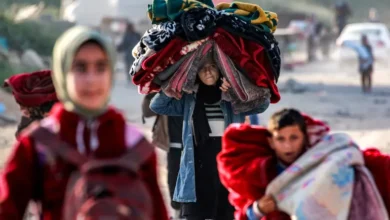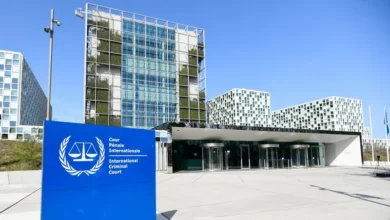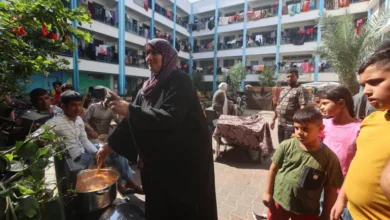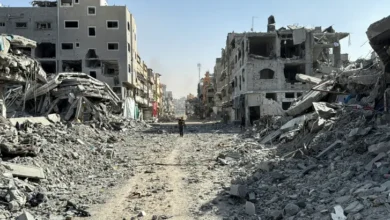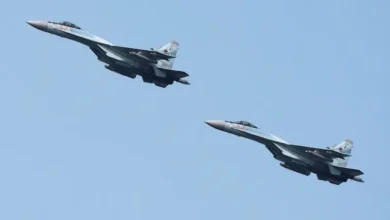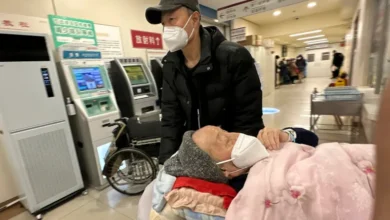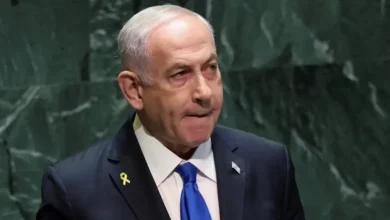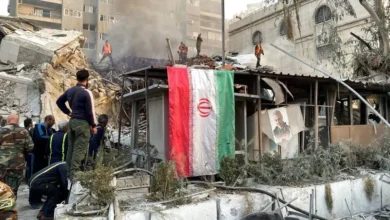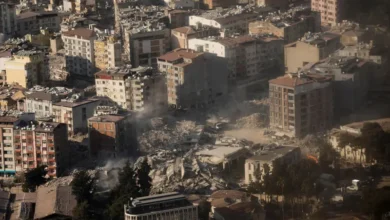Water & sanitation services collapse in Gaza Strip, placing thousands at risk: UNRWA
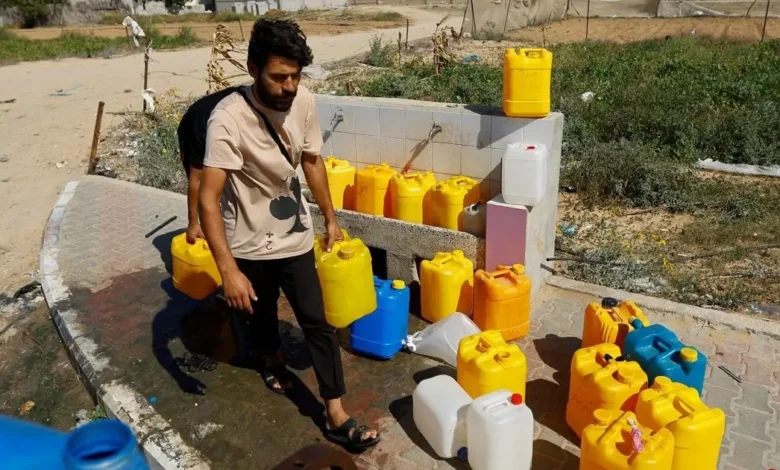
In stark contravention of its own deadline set for civilians to move to the south, the Israeli Air Force has continued to strike Khan Younis and other southern areas in the Gaza Strip, triggering a massive water and fuel scarcity, according to the latest report issued by the United Nations Relief and Works Agency (UNRWA).
Warning that “people will start dying” due to dehydration and waterborne diseases, the UN agency said water scarcity in the area has reached critical levels.
With the region’s last functioning desalination plant shut down, water and sanitation services have collapsed in the Gaza Strip.
One water line was opened on Tuesday for three hours in the southern part of the Gaza Strip, providing only a limited supply to just half of Khan Younis’ population of close to 100,000 people.
“This does not address the urgent water needs in the other parts of Khan Younis, the Middle Area and Rafah. Only 14 percent of the population in the Strip benefited from this three-hour opening of the water line,” the UNRWA report observed.
Lives of thousands at ‘serious’ risk
According to the UN agency’s estimates, 600,000 liters of fuel are needed in Gaza daily to keep its water and desalination plants running. On October 16, UNRWA moved its “existing but very limited” fuel supplies into Gaza.
Fuel reserves in hospitals across Gaza are expected to last for another 24 hours only, the UN agency further warned in its report.
“The shutdown of backup generators will place the lives of thousands of patients at serious risk,” the agency added.
The UNRWA is running eight primary health clinics in the middle and southern Gaza Strip, it said, adding that the medical facilities are likely to run out of medicines in the coming month.
In some clinics, supplies are expected to run out sooner due to difficulties in transportation from one location to another, the UN agency said.
“Intensive high-level advocacy efforts are being made by UNRWA and the UN to allow critical humanitarian supplies into the Gaza Strip,” the agency said.
Meanwhile, significant access and movement restrictions and increasing settler violence continue in the West Bank.
Authorities in Gaza say at least 2,837 people have been killed in Israeli strikes so far, with a quarter of them being children – and nearly 10,000 have been wounded.
A further 1,000 are missing and believed to be under the rubble.
Fourteen UNRWA staff members have also been killed in the conflict, “but the [actual] numbers are likely to be higher,” the agency clarified.
More than 1,300 Israelis and foreign nationals were killed in the October 7 attack on Israel by Hamas militants, one of the deadliest in the state’s 75-year history.
